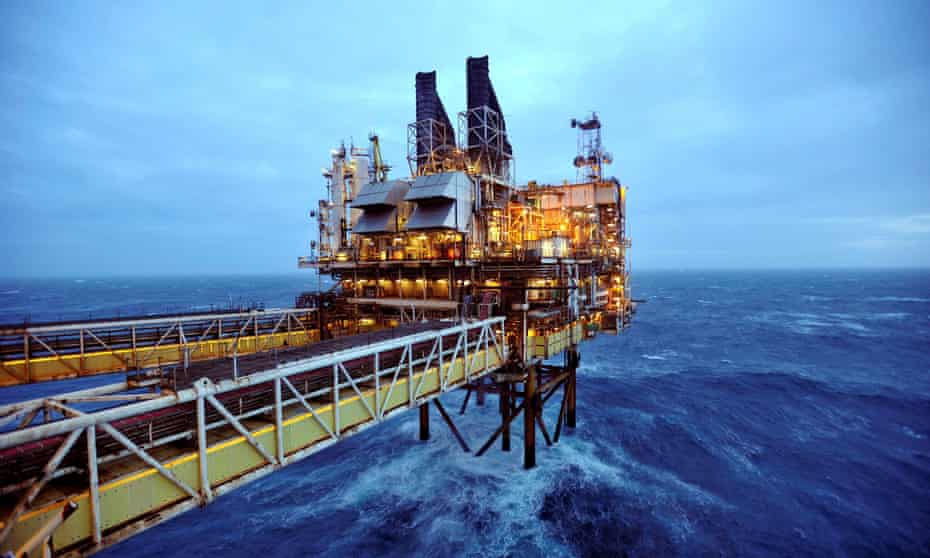There are no real climate leaders yet – who will step up at Cop26?

Like other rich nations, the UK is more talk than action on the climate crisis. Something needs to change in Glasgow
Greta Thunberg accuses world leaders of being in denial over climate crisis

The UN secretary general, Antonio Guterres, called the recent IPCC report on the climate crisis a “code red” for humanity. “We are at the verge of the abyss,” he said.
You might think those words would sound some kind of alarm in our society. But, like so many times before, this didn’t happen. The denial of the climate and ecological crisis runs so deep that hardly anyone takes real notice any more. Since no one treats the crisis like a crisis, the existential warnings keep on drowning in a steady tide of greenwash and everyday media news flow.
And yet there is still hope, but hope all starts with honesty.
Because science doesn’t lie. The facts are crystal clear, but we just refuse to accept them. We refuse to acknowledge that we now have to choose between saving the living planet or saving our unsustainable way of life. Because we want both. We demand both.
But the undeniable truth is that we have left it too late for that. And no matter how uncomfortable that reality may seem, this is exactly what our leaders have chosen for us with their decades of inaction. Their decades of blah, blah, blah.
Science doesn’t lie. If we are to stay below the targets set in the 2015 Paris agreement – and thereby minimise the risks of setting off irreversible chain reactions beyond human control – we need immediate, drastic, annual emission reductions unlike anything the world has ever seen. And since we don’t have the technological solutions which alone will do anything close to that in the foreseeable future, it means we have to make fundamental changes to our society.
We are currently on track for at least a 2.7C hotter world by the end of the century – and that’s only if countries meet all the pledges that they have made. Currently they are nowhere near doing that. We are “seemingly light years away from reaching our climate action targets”, to once again quote Guterres.
In fact, we are speeding in the wrong direction. 2021 is currently projected to experience the second-biggest emission rise ever recorded, and global emissions are expected to increase by 16% by 2030 compared with 2010 levels. According to the International Energy Agency, only 2% of governments’ “build back better” recovery spending has been invested in clean energy, while at same time the production and burning of coal, oil and gas was subsidised by $5.9tn in 2020 alone. The world’s planned fossil fuel production by the year 2030 accounts for more than twice the amount than would be consistent with the 1.5C target. This is science’s way of telling us that we can no longer reach our targets without a system change. Because doing so would require tearing up contracts and abandoning deals and agreements on an unimaginable scale – something that is simply not possible in the current system.
In short, we are totally failing to even reach targets that are completely insufficient in the first place. And that’s not the worst part. In my own country, Sweden, a news investigation recently concluded that once you include all of Sweden’s actual emissions (territorial, biogenic, consumption of imported goods, burning of biomass, pension fund investments and so on), only one-third of the net total is accounted for in the country’s climate targets. It is reasonable to assume that this is not just a Swedish phenomenon.
Surely the first step to address the climate crisis should be to include all of our actual emissions into the statistics in order to obtain a holistic overview. This would allow us to evaluate the situation and start making the necessary changes. But this approach has not been adopted – or even proposed – by any world leaders. Instead they all turn to communication tactics and PR in order to make it seem as if they are taking action.
One textbook example is the UK – a nation that is currently producing 570m barrels of oil and gas each year. A nation with a further 4.4bn barrels of oil and gas reserves to be extracted from the continental shelf. A nation that is also among the 10 biggest emitters in history. Our emissions stay in the atmosphere for up to a thousand years and we have already emitted about 89% of the CO2 budget that gives us a 66% chance of staying below 1.5C. This is why historical emissions and the aspect of equity not only count – they basically make up 90% of the entire crisis
Between 1990 and 2016, the UK lowered its territorial emissions by 41%. However, once you include the full scale of UK emissions – such as consumption of imported goods, international aviation and shipping – the reduction is more like 15%. And this is excluding burning of biomass, like at Drax’s Selby plant – a heavily subsidised so-called “renewable” power plant that is, according to analysis, the UK’s biggest single emitter of CO2 and the third biggest in all of Europe. And yet the government still considers the UK to be a global climate leader.
The UK is, of course, far from the only country relying on such creative carbon accounting. This is the norm. China, currently by far the world’s biggest emitter of CO2, is planning to build 43 new coal power plants on top of the 1,000 plants already in operation – while also claiming to be an ecological “trailblazer” committed to leaving “a clean and beautiful world to future generations”. Or take the new US administration, claiming to “listen to … science” even though it – among many other reckless decisions – recently announced plans to open millions of acres for oil and gas that could ultimately result in production of up to 1.1bn barrels of crude oil and 4.4tn cubic feet of fossil gas. Being by far the biggest emitter in history, as well as the world’s number one oil producer, doesn’t seem to embarrass the US while it claims to be a climate leader.
The truth is there are no climate leaders. Not yet. At least not among high-income nations. The level of public awareness and the unprecedented pressure from the media that would be required for any real leadership to appear is still basically nonexistent.
Science doesn’t lie, nor does it tell us what to do. But it does give us a picture of what needs to be done. We are of course free to ignore that picture and remain in denial. Or to go on hiding behind clever accounting, loopholes and incomplete statistics. As if the atmosphere would care about our frameworks. As if we could argue with the laws of physics.
As Jim Skea, a leading IPCC scientist, put it: “Limiting warming to 1.5C is possible within the laws of chemistry and physics, but doing so would require unprecedented changes.” For the Cop26 in Glasgow to be a success it will take many things. But above all it will take honesty, solidarity and courage.
The climate and ecological emergency is, of course, only a symptom of a much larger sustainability crisis. A social crisis. A crisis of inequality that dates back to colonialism and beyond. A crisis based on the idea that some people are worth more than others and, therefore have the right to exploit and steal other people’s land and resources. It’s all interconnected. It’s a sustainability crisis that everyone would benefit from tackling. But it’s naive to think that we could solve this crisis without confronting the roots of it.
Things may look very dark and hopeless, and given the torrent of reports and escalating incidents, the feeling of despair is more than understandable. But we need to remind ourselves that we can still turn this around. It’s entirely possible if we are prepared to change.
Hope is all around us. Because all it would really take is one – one world leader or one high-income nation or one major TV station or leading newspaper who decides to be honest, to truly treat the climate crisis as the crisis that it is. One leader who counts all the numbers – and then takes brave action to reduce emissions at the pace and scale the science demands. Then everything could be set in motion towards action, hope, purpose and meaning.
The clock is ticking. Summits keep happening. Emissions keep growing. Who will that leader be?
-
Greta Thunberg is a Swedish activist who inspired a movement of school strikes against government climate inaction
